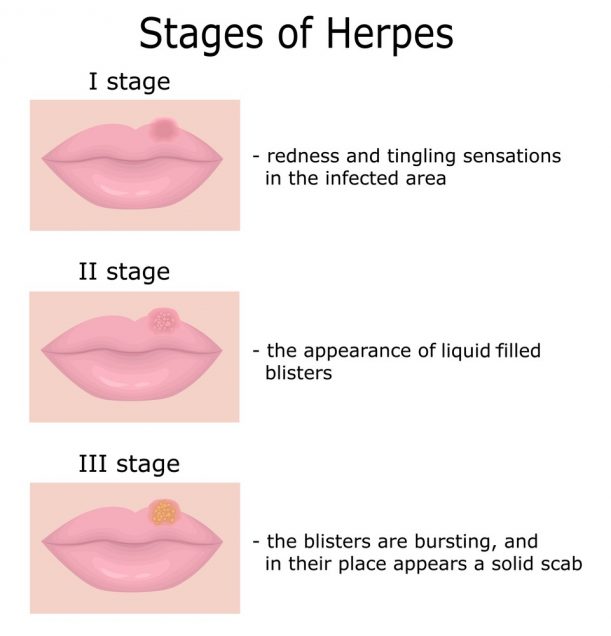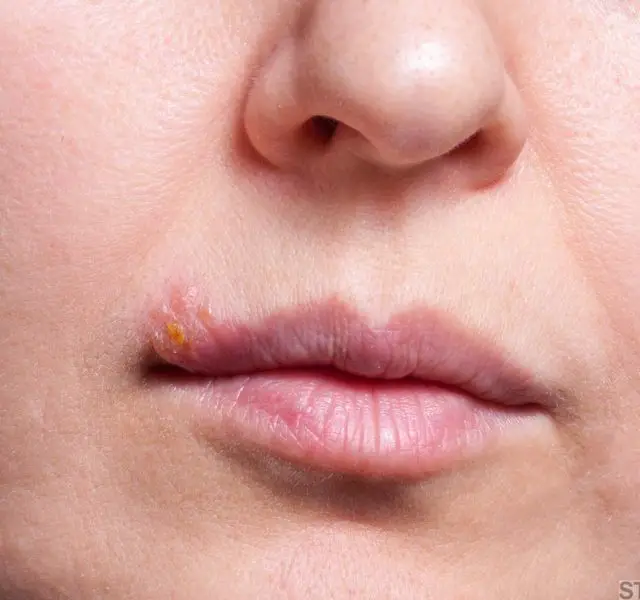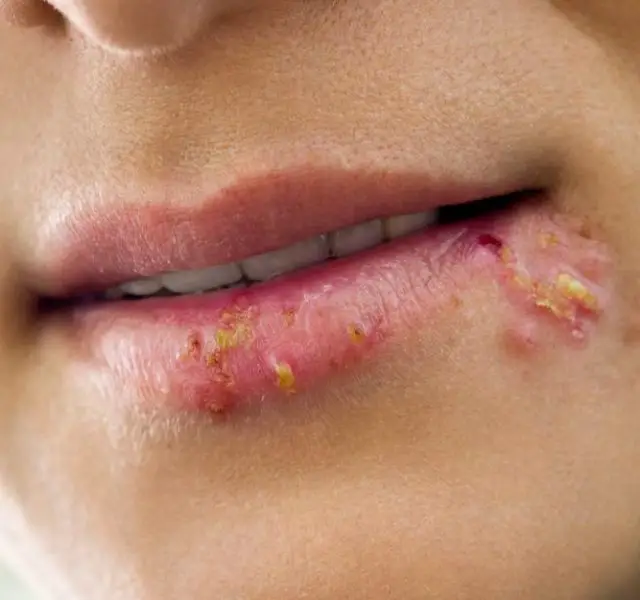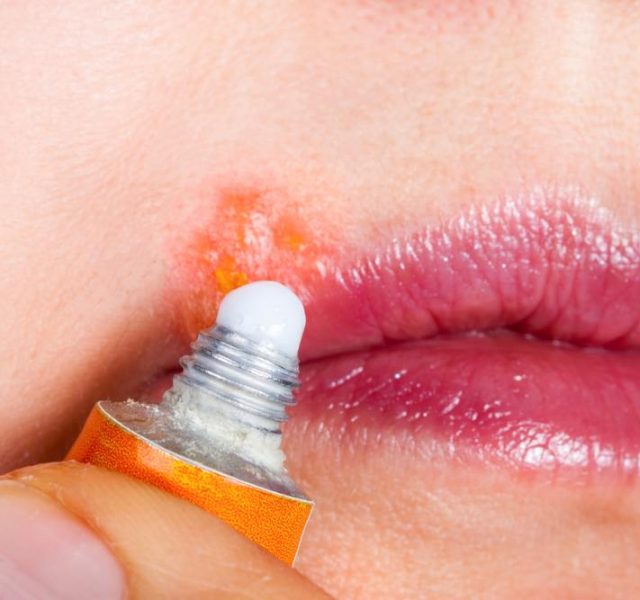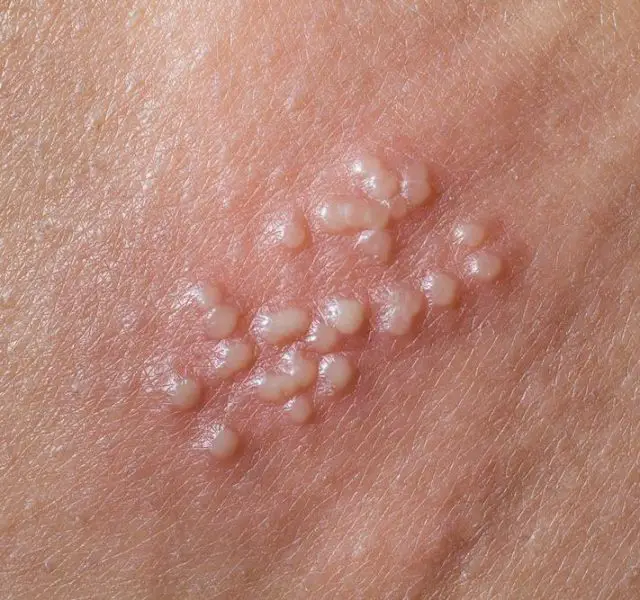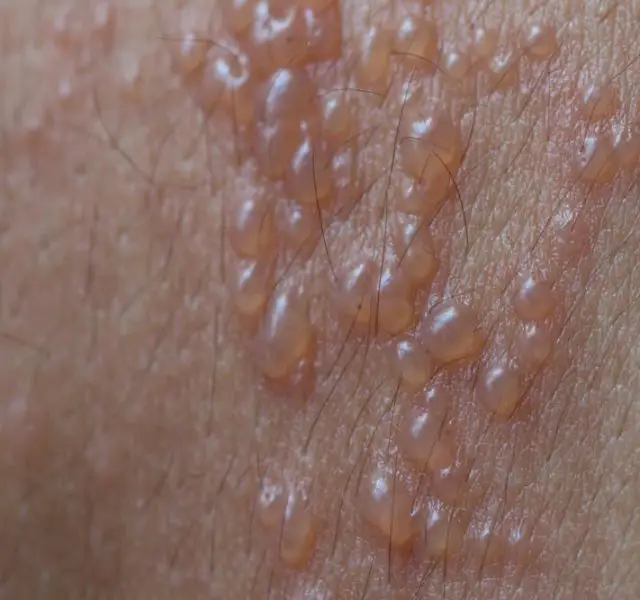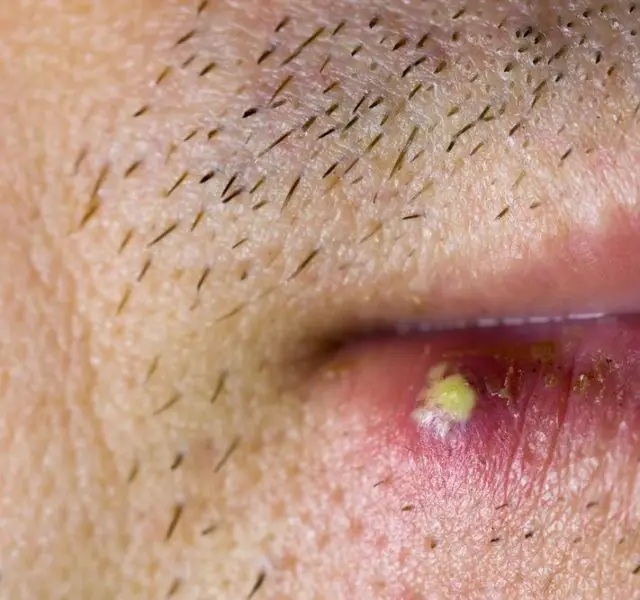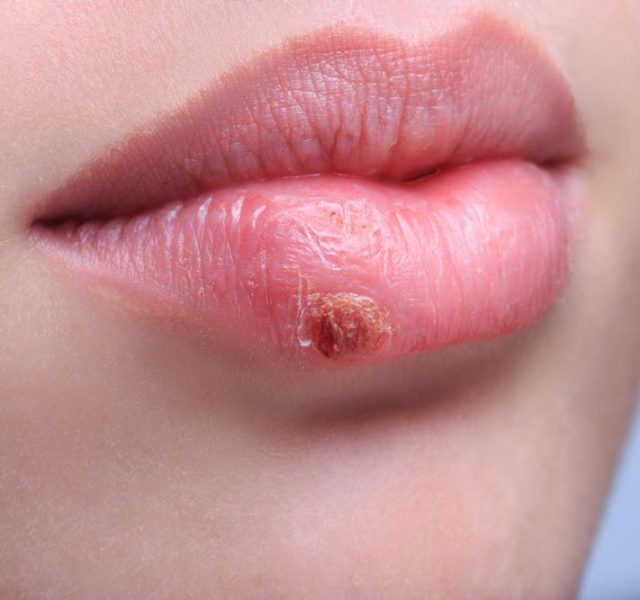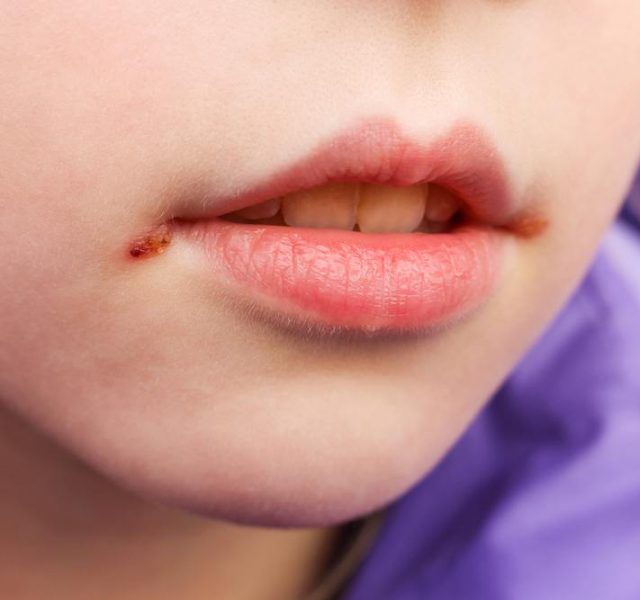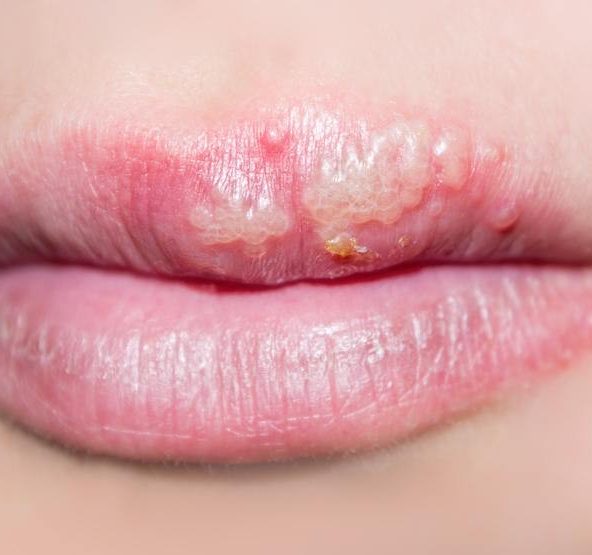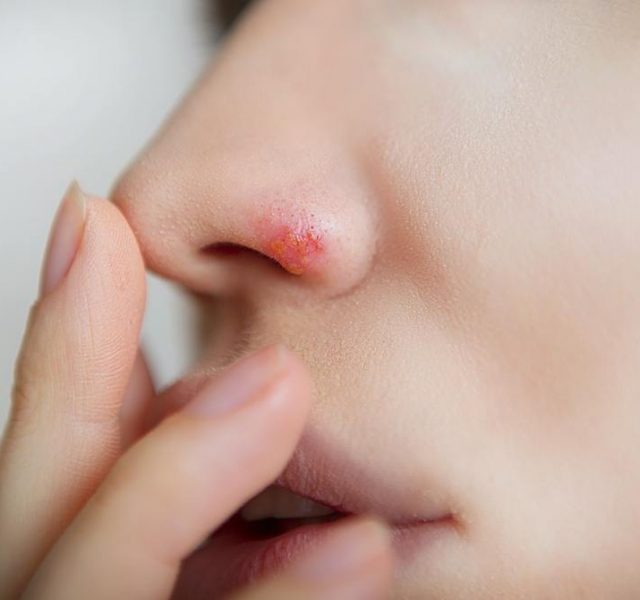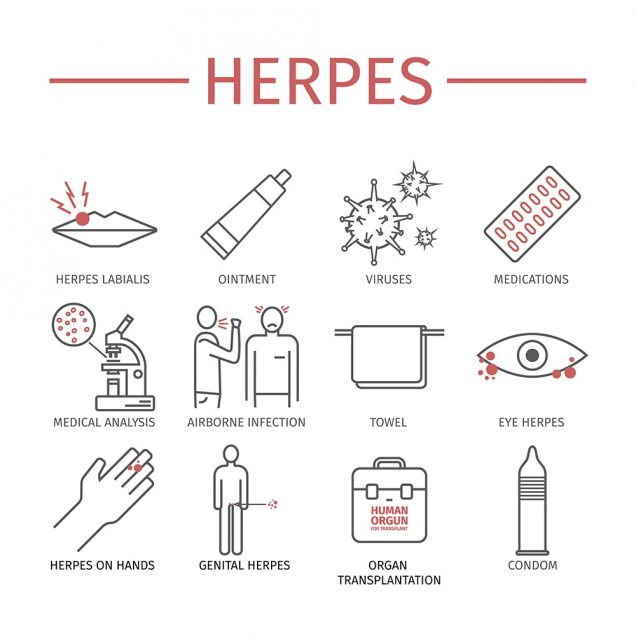Herpes (Herpes Simplex)
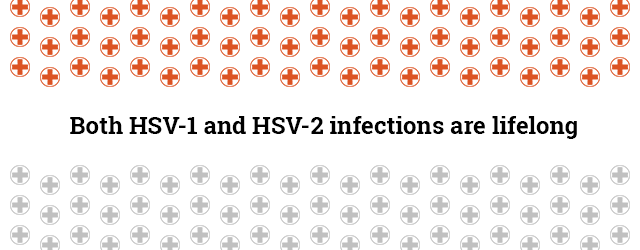
What is Herpes Simplex?
Two types of a viral infection characterized by periodic outbreaks of painful sores. Stress, sunburn, and certain foods are the primary causes of a herpes outbreak.
How is Herpes contracted?
Both herpes simplex virus-1 and virus-2 may be transmitted through sex, or by kissing or touching any affected area. A condom can prevent herpes transmission during vaginal or anal sex, but oral contact with genitals or open sores anywhere can spread the disease. Washing hands can also minimize transmission.
Incubation Period
Anywhere from five to twenty days.
Symptoms of Herpes Simplex
Herpes simplex virus-1 usually shows up as cold sores or blisters. For those who have herpes simplex virus-2, some have no symptoms, while others may show signs of an infection from five to twenty days after having sex with an infected partner. Early symptoms can include a burning sensation in the genitals, low back pain, pain when urinating, and flu-like symptoms. A short while later, small red bumps may appear around the genitals or on the mouth; later these bumps become painful blisters which then crust over, form a scab, and heal.
Testing
Your doctor will examine the sores and test fluid from the blisters.
Treatment
Symptoms can be relieved with medications such as acyclovir.
- Genital Herpes: Acyclovir 200-400mg three times a day for 10 days;
- Herpes prophylaxis: Acyclovir 200-400mg twice a day;
- Herpes zoster (shingles): Acyclovir 800mg 5 times a day for 10 days.
If you are not treated
While herpes is not life-threatening, and not all people who have it suffer from outbreaks, those who do experience outbreaks find that topical medication as Zoviraxointment eases the pain and can help speed recovery when blisters appear.

